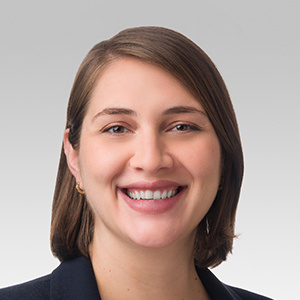When Is Memory Loss a Problem?
Know When to Get Evaluated
Published February 2023
At some point, you will likely question your memory. It may be after forgetting something at the store, misplacing a hotel room key or searching for your sunglasses while they are sitting on your head. In those moments, you may ask yourself, "Should I be concerned?"
Before you start to worry about your ability to remember things, it's helpful to understand the differences between short- and long-term memory:
Short-term memory is any memory that lasts up to 30 seconds. You use it to remember something you saw on the menu and order it, dial a phone number you just heard or think of a response to a question and say it. Your short-term memory can hold about seven pieces of information at a time. It's not unlimited storage.
Long-term memory is any memory that lasts longer than 30 seconds. You use your long-term memory to ride a bike, remember the lyrics of a song or remember someone's birthday. The more you repeat information or use it, the more likely it will end up in your long-term memory. The storage capacity for long-term memory has no limits. However, not all of your long-term memories are strong ones. Many need cues for you to recall them. For example, when a name is on the tip of your tongue, you may know the first letter, but need a prompt to remember the full name.
What's Normal, What's Not
Alexandra Petrakos, MD, a geriatrician at Northwestern Medicine, says that as you age, it becomes more difficult to remember new things. "It's harder for the neurons in your brain to make the connections needed to form memories," she explains. "It's certainly not impossible to remember something new, just harder."
Dr. Petrakos says that not remembering the name of someone you met recently or periodically misplacing car keys are normal signs of memory loss due to aging. "You are still functioning, even though it can be frustrating at times," she says. "It's not impacting your day-to-day life."
If you start to notice that memory issues are impacting your daily life, Dr. Petrakos advises making an appointment with your primary care physician.
Talk to your physician if you notice any of these signs:
- Continually misplacing items and finding them in unusual places, like the freezer
- Repeating questions frequently
- Forgetting to pay bills or other routine tasks
- Getting lost in a familiar area while driving or walking
- Having trouble managing your medications at home
"There are quick cognitive screening tests your primary care physician can give you during a visit. These are validated clinical tools that have been well studied," says Dr. Petrakos. "If your results are abnormal, your physician will refer you to a specialist, such as a neurologist, geriatrician or neuropsychologist, for further evaluation."
Causes of Memory Loss
In addition to aging, there are many other causes of memory loss, including:
- Sleep deprivation
- Alcoholism
- Medications
- Chronic pain conditions
- Emotional disorders
- Vitamin deficiencies
- Hypothyroidism (underactive thyroid gland)
- Head trauma or injury
- Stroke
- Epilepsy
- Mild cognitive impairment
- Neurodegenerative diseases (including Alzheimer's disease and Parkinson's disease)
Your care team can diagnose the cause of your memory problems and determine what treatment, if any, is necessary. Some causes of memory loss can be treated, such as sleep apnea or vitamin B-12 deficiency. Others like Alzheimer's disease and vascular dementia require future care planning with your medical team and loved ones.
Your care team can also recommend more resources, such as support groups and organizations like the Alzheimer's Association, to help you and your family cope with a diagnosis and memory loss.






